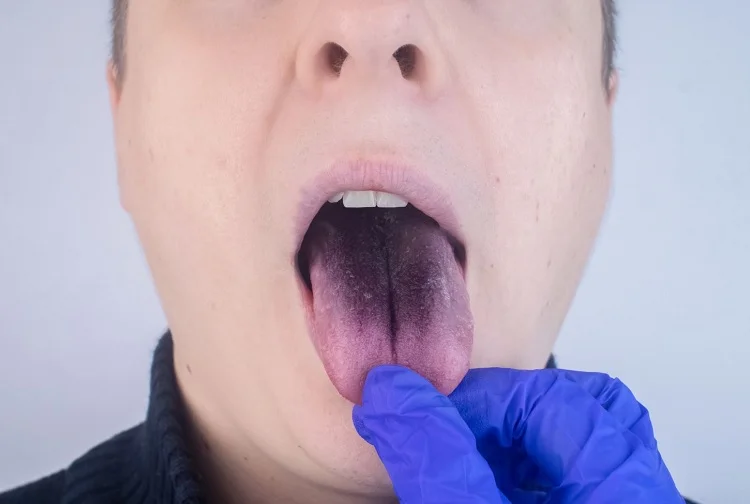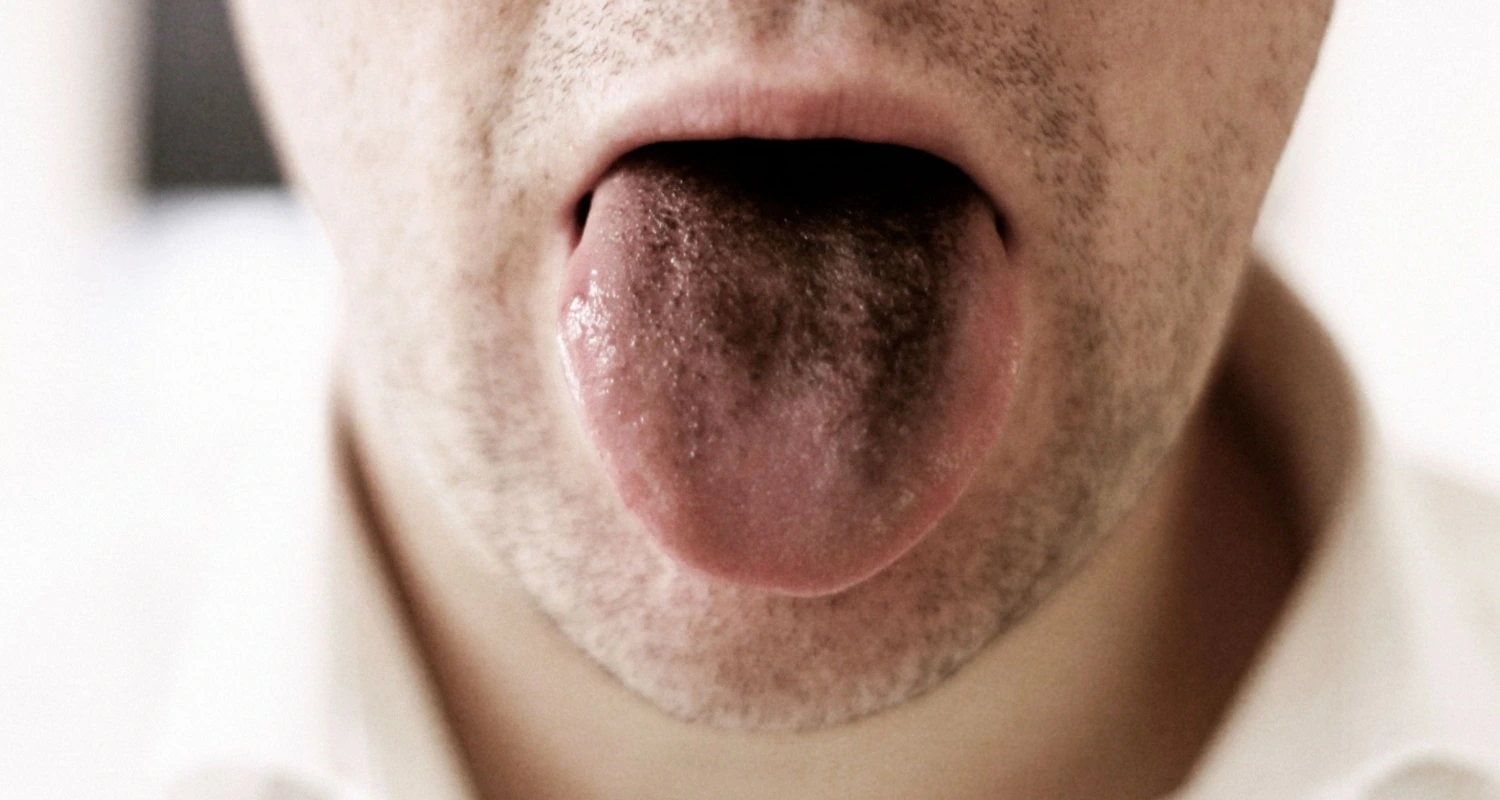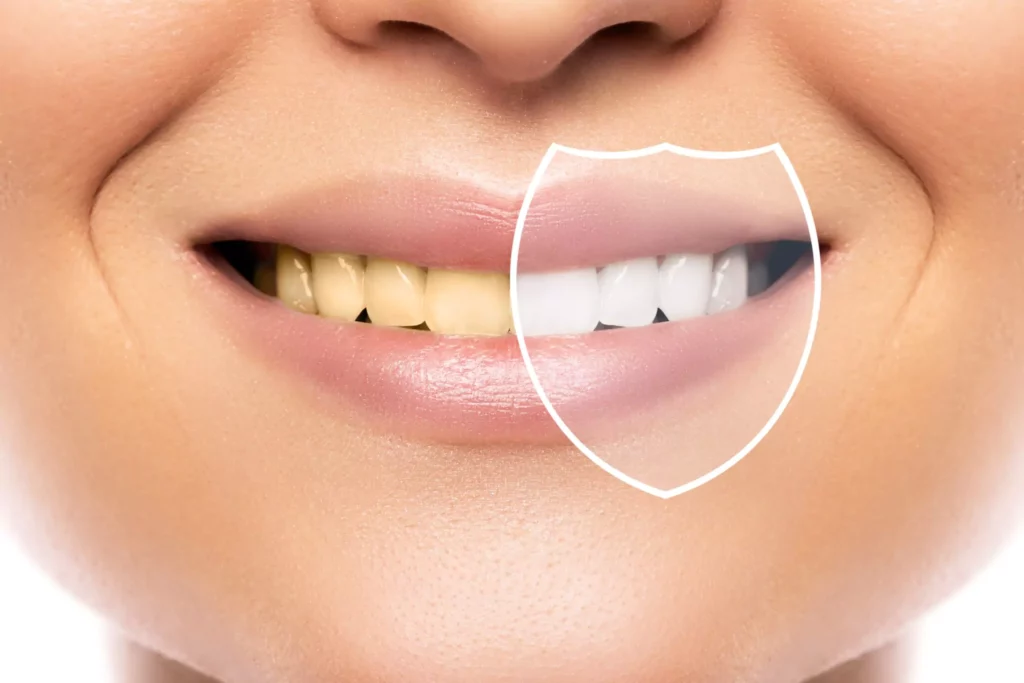What is a Black Tongue?
Finding that your tongue has changed to a dark hue and in some cases shows a hairy appearance generates an immediate question: What is the cause of the black tongue? Why do I have a black tongue?
Although this oral health condition does not cause alarm, it is important to know why it occurs, its symptoms, and how to prevent it.
Black tongue is a temporary, painless oral condition, also known as hairy tongue, that results from the buildup of dead skin cells on the taste buds.
The American Academy of Oral Medicine indicates that black tongue affects approximately 13% of people from different population groups at some point in life. This tongue condition is more common in people over 65 years of age.
Why is the tongue black?
The tongue changes color due to the excessive growth of papillae that favor the accumulation of food residues, a condition that generates a change in the balance of oral bacteria and color.
The hairy appearance the tongue shows in some cases is caused by the accumulation of keratin, a fibrous protein that fulfills a protective function. Usually, this is shed along with normal skin cells, but sometimes the keratin is stored in the papillae and produces a fuzzy appearance.
Other common causes of the black tongue are:
1. Antibiotic medications
2. Excessive consumption of alcohol, coffee, tea or tobacco
3. Poor oral hygiene
4. The use of mouthwashes that contain astringent (menthol), oxidizing (peroxide) or irritating substances
5. Cases of differential diagnoses for weakened immune systems (people with diabetes, HIV)
6. Xerostomia (dry mouth)
7. A diagnosis of trigeminal neuralgia, a condition that affects the facial nerves
8. Radiotherapy treatments
9. A soft diet that does not favor the exfoliation of dead cells on the tongue and generates this oral health condition
What are the symptoms of black tongue?
The first sign is a change in the color of the tongue, which can turn black, yellow, brown, green, or white. The alteration in the pigment of the tongue can also present other signs, such as:
• Velluted appearance on the tongue.
• Halitosis (bad breath).
• Metallic taste sensation on the tongue or change in taste.
• Burning, tickling, or nausea from the overgrowth of the papillae
The diagnosis is made based on the pigmentation (color) of the tongue and the information provided by the person to the health professional.
Generally, this condition of the tongue is overcome with oral hygiene, which is why it is suggested to improve oral hygiene practices. If after a week the situation persists, you should consult your doctor to follow the corresponding treatment.
Can it be prevented?
Making changes in your eating habits, consumption of certain foods and oral prophylaxis will allow you to avoid this condition.
1. Brush your tongue with fluoride-containing toothpaste after each meal.
2. Consuming raw fruits and vegetables helps clear the tongue.
3. At night, avoid eating or drinking after brushing.
4. Do not use mouthwashes that contain peroxide or other oxidizing substances.
5. Use tongue scraper to remove accumulated bacteria and debris.
6. Reduce the consumption of alcohol, coffee, tea, and tobacco.
It should be taken into account that if the color change in the tongue is an adverse reaction to the consumption of any medication, your doctor should be consulted to make a change in the respective treatment protocol.
More information about the diagnosis and treatment for black tongue can be found in this blog.
Frequently Asked Questions
What limitations apply to temporary fillings?
Temporary fillings come with specific dietary restrictions. It’s advisable to steer clear of hard foods such as nuts and sticky foods like toffee. Instead, opt for soft foods like soup and mashed potatoes, which are more suitable. Additionally, remember to brush your teeth gently.
When can I safely eat after getting a temporary filling?
It is generally advisable to wait until the anesthesia has fully worn off to prevent accidentally biting your tongue. In certain cases, it may be necessary to wait up to 24 hours before consuming food on the side of the mouth where the filling was placed. This waiting period ensures that the filling remains secure and intact.
Which foods should be avoided after receiving a temporary filling?
As a general guideline, it’s best to steer clear of sticky foods such as gum and chewy caramels, as well as solid and crunchy foods like nuts and hard candy. These types of foods have the potential to dislodge the temporary filling.
Is it safe to brush my teeth after receiving a temporary filling?
Following the placement of a temporary filling, you might have some apprehensions regarding brushing your teeth. However, it is perfectly fine to brush the filled tooth just as you would your other teeth. To ensure caution, employ a toothbrush with soft or extra-soft bristles and brush gently, yet attentively.
Share:
References
1. Cleveland Clinic (Abril de 2022) Black Hairy Tongue / https://my.clevelandclinic.org/health/diseases/17918-black-hairy-tongue
2. Hennesy, Bernard (Mayo de 2022)Tongue coloration anomaly and other alterations / https://www.msdmanuals.com/es/professional/trastornos-odontol%C3%B3gicos/trastornos-de-los-labios-y-la-lengua/anomalia-de-coloraci%C3%B3n-de-la-lengua-y-otras-alteraciones
3. Mayo Clinic (May 2018), Black hairy tongue / https://www.mayoclinic.org/diseases-conditions/black-hairy-tongue/symptoms-causes/syc-20356077
4. Middlesex Health (Sep 2018) Black Hairy Tongue / https://middlesexhealth.org/learning-center/espanol/enfermedades-y-afecciones/lengua-vellosa-negra
5. Villines, Zawn (November 29, 2019)Black tongue: Causes and what to do / https://www.medicalnewstoday.com/articles/327089#summary
-
Nayibe Cubillos M. [Author]
Pharmaceutical Chemestry |Pharmaceutical Process Management | Pharmaceutical Care | Pharmaceutical Services Audit | Pharmaceutical Services Process Consulting | Content Project Manager | SEO Knowledge | Content Writer | Leadership | Scrum Master
View all posts
A healthcare writer with a solid background in pharmaceutical chemistry and a thorough understanding of Colombian regulatory processes and comprehensive sector management, she has significant experience coordinating and leading multidisciplina...


















